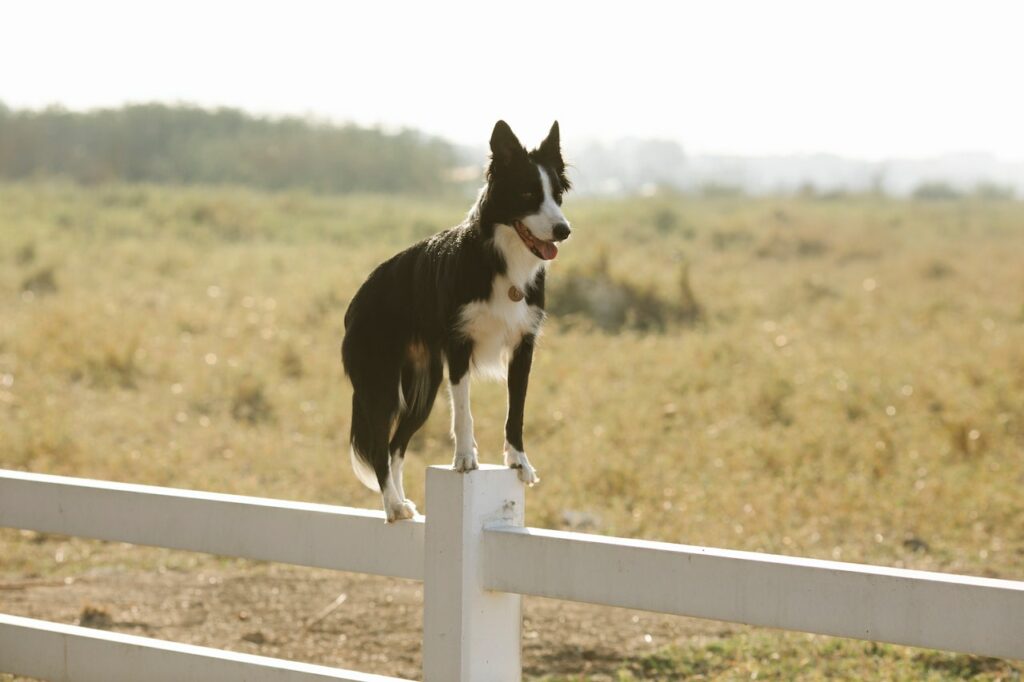When Do Border Collies Stop Growing? Get the Facts & Tips for Healthy Development!
Are you a Border Collie owner, or are you considering adopting one? If so, it’s important to understand when the breed typically stops growing. Knowing when your pup will reach its full size is not only helpful for planning purposes but also essential when determining how much exercise and nutrition they need to stay healthy and happy. In this article, we’ll explore when exactly Border Collies stop growing and what factors can influence their growth rate and size. We’ll also provide tips on identifying when your pup has reached its full size and address any common health concerns associated with the rapid growth of this breed. So if you’re eager to learn more about when border collies stop growing, read on!
When Do Border Collies Stop Growing?
Border collies are trendy and intelligent medium-sized dogs that make wonderful family companions. But how large do these dogs become, and when do they stop growing?
Average Size of a Fully Grown Border Collie
On average, a fully grown border collie will range from 18 to 22 inches tall at their shoulder. That makes them slightly larger than a beagle but smaller than a Labrador retriever. They typically weigh between 30 and 45 pounds fully grown. Some individual dogs may grow larger or smaller than these measurements depending on the size of their parents, diet, and overall health.
Factors That Affect Growth Rate
Various factors can affect the rate at which a border collie grows into adulthood. These include:
Age:
Puppies will naturally grow much faster than adult dogs because they are still developing into maturity. After 8 months, most puppies will have reached 90% of their full adult size; after 12 months, they should have reached full adulthood if all other factors remain consistent.
Diet:
A balanced diet rich in protein, fats, vitamins and minerals is essential for healthy growth in puppies and adult dogs. Poor nutrition can result in slowed growth or stunted development; conversely, providing extra calories can accelerate the growth rate temporarily (although it is not recommended long term).
Gender:
Generally speaking, male border collies will be slightly larger than females due to natural hormonal differences between genders. However, this difference is usually minimal unless the dog has been deliberately bred for a specific size purpose (i.e., show standard).
Genetics:
A puppy inherits genetics from its parents also play an important role in determining how big it will eventually become when fully grown. If one or both parents were large-breed dogs, then it stands to reason that the puppy could grow to be larger than average due to shared genetic traits.
Growth Plate Closure in Border Collies
As mentioned earlier, most puppies reach 90% of their full adult size by eight months of age; after 12 months, they should have reached full adulthood, barring any unforeseen issues such as poor nutrition or health problems like joint dysplasia or parvovirus which could stunt development temporarily or permanently if left unchecked. At around ten months old (give or take), your pup’s growth plates begin to close – this process is known as epiphyseal plate closure (EPC). As EPC progresses over time, the bones harden, joints fuse and finally stop growing any further – this marks the end stage in your pet’s physical maturation process where no further change in height is possible (however, muscles &weight may continue changing for several more months afterwards).
Exercises To Keep Your Border Collie Healthy During Growth Periods
For a border collie pup to reach adulthood with minimal issues, proper exercise & nutrition regimes must be maintained throughout his/her growth period up until EPC occurs (at around ten months old).
Here are some exercises you can perform with your pet during this critical development period:
Fetching games
Playing fetch with balls or frisbees helps develop strong muscles while providing essential exercise at the same time.
Swimming
Swimming is an excellent way to provide low-impact exercise while avoiding potential joint pain associated with running on hard surfaces.
Agility training
Agility training provides both physical & mental stimulation while helping build strength & coordination skills that will come in handy come adulthood.
Socialization
Socializing with other people & animals helps reduce anxiety levels while allowing pups to learn basic communication cues & commands. These skills will come into use later on when dealing with strangers/neighbours/etc…
Conclusion: When Do Border Collies Stop Growing?
By now, you’ve hopefully got an idea about how big your pup may become when fully grown and what kinds of exercises & diets can help ensure optimal health during their growing years. So finally, we come back to our original question, “when do border collies stop growing?” On average most puppies reach 90% of their full adult size by eight months. However, for some individuals, it may take longer depending on gender, genetics & lifestyle factors discussed here today, so keep an eye out!
If you have a Border Collie puppy, now is the perfect time to get them insured with furrr.co.uk! With comprehensive coverage for any eventuality, you can be sure that your pup will receive the best care when they need it most. Plus, by getting them insured early on in their development, you’ll save over 25% when compared to insuring an adult dog – so what are you waiting for? Head over to furrr.co.uk today and get peace of mind knowing that your pet is covered no matter what life throws at them!










